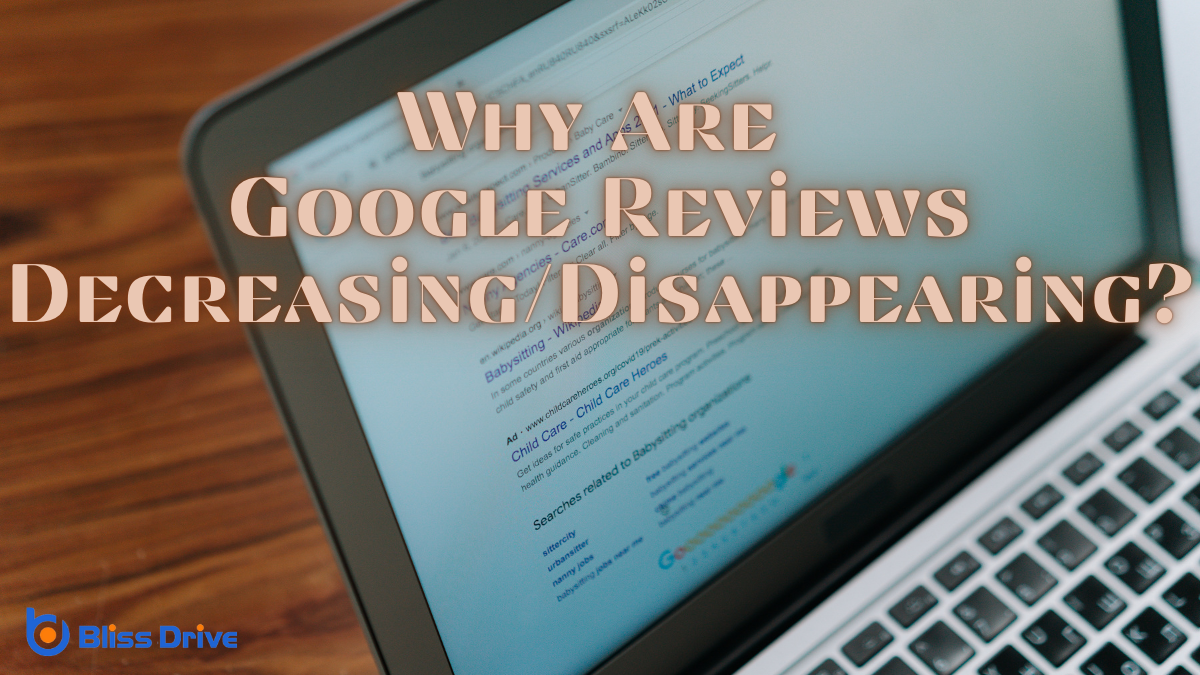Learn More About Us

I've noticed something curious: Google reviews seem to be dwindling or vanishing altogether. It's fascinating yet perplexing to contemplate the factors at play here. With Google's algorithm constantly evolving, a heightened focus on authenticity, and the impact of spamUnsolicited and irrelevant emails sent to a large number of recipients. controls, it seems like a perfect storm. Could it be policy changes or perhaps user fatigue that's driving this trend? Let's explore the underlying causes and what they mean for businesses.
Google’s algorithm is always evolving, and these changes can have a significant impact on how reviews are displayed and prioritized.
When I search for a business, I notice that the reviews I see mightn't always be the most recent or relevant. Google's updates can sometimes mean older reviews appear more prominently, or some reviews disappear altogether.
It’s frustrating when I rely on reviews for making decisions. This happens because Google's algorithm considers factors like review quality, recency, and relevance. Sometimes, it filters out reviews it deems less trustworthy.
I’ve realized that understanding these changes helps me navigate why certain reviews aren't visible. It’s a reminder that Google's system is complex, aiming to deliver what it thinks is most useful.

While exploring Google Reviews, I've noticed a growing emphasis on ensuring that reviews are genuine and credible.
Google's commitment to authenticity is reshaping how reviews appear. They've implemented stricter guidelines, making sure that each review genuinely reflects a user's experience. This focus aims to enhance trust, allowing customers to make informed decisions based on reliable feedback.
I find it reassuring that Google is taking steps to validate reviews by using advanced technology to detect inconsistencies and track suspicious patterns. In doing so, some reviews might be flagged or removed if they don’t meet these authenticity standards.
This shift might explain why we see fewer reviews. It’s all about promoting quality over quantity, ensuring that each review truly adds value.
Spam and fake reviews have a significant impact on the reliability of Google Reviews.
I’ve noticed that they can distort a business's true reputation, making it challenging for users like me to trust the feedback. These deceptive reviews often inflate or deflate ratings, leading to confusion and dissatisfaction.
When I’m trying to choose a service or product, I rely on genuine opinions. If reviews are manipulated, they lose their value, and I might end up making poor decisions. It’s frustrating because I want to believe that what I’m reading reflects real experiences.
When users encounter fake reviews, they become skeptical, which can ultimately leadA potential customer referred by an affiliate who has shown interest in the product or service but h... to a decrease in engagementThe interactions that users have with a brand’s content on social media. with the platform. We need to guarantee authenticity for trustworthy guidance.
Amid growing concerns about the authenticity of reviews, I’ve noticed that recent policy updates on Google have aimed to tackle these issues head-on.
Google’s new rules are designed to filter out fake reviews, guaranteeing that the feedback we read is genuine. While this is a step in the right direction, it’s also resulted in some legitimate reviews disappearing.
I’ve seen businesses express frustration as genuine customer feedbackInformation provided by customers about their experience with a product or service, used to improve ... vanishes, impacting their online reputation and potential sales.
These changes emphasize accuracy and trust, but they also require us to adapt.
If you’re a business owner or a reviewer, staying informed about these updates is vital. Understanding Google’s guidelines will help make sure your reviews remain visible and credible in an evolving digital landscape.

As we navigate Google's evolving review policies, another challenge emerges: user engagementThe level of interaction and involvement users have with social media content. and review fatigue.
I've noticed that many of us hesitate to write reviews as often as before. Here's why:
Addressing these issues is essential for maintaining a vibrant review ecosystem.
Let's make sure our voices continue to be heard and valued.
While maneuvering through Google’s review platform, technical issues and glitches can be frustrating barriers that discourage us from sharing our experiences.
Sometimes, I’ve tried to leave a review, only to encounter an error message. It’s not just me; others have shared similar experiences. These glitches can make the platform unreliable, leaving us unsure if our voices will be heard.
We rely on technology to work seamlessly, so when it doesn’t, it’s easy to feel disconnected. Imagine crafting a thoughtful review, clicking submit, and watching it vanish due to a technical hiccup. It’s disheartening.
This can lead to fewer reviews being posted, as some people might just give up trying. Understanding these issues helps us realize the challenges Google faces.
Businesses need to adapt and thrive, even when Google reviews seem to be decreasing. Don’t worry; there are effective strategies to take into account.
First, focus on enhancing your customer service. By creating memorable experiences, you encourage word-of-mouth recommendations beyond digital platforms.
Second, engage directly with your community through social media. This builds stronger relationships and compensates for any gaps in online reviews.
Finally, diversify your review strategy:
These steps can help maintain your business's reputation and attract new customers, even amid fluctuating Google reviews.
I've noticed Google reviews are decreasing, and it's largely due to changes aimed at prioritizing quality over quantity. Google's algorithm now focuses more on authenticity, filtering out fake and spam reviews, but sometimes genuine ones get caught too. Users are also feeling overwhelmed, leading to review fatigue. Despite these challenges, businesses need to adapt by encouraging honest feedback and engaging directly with their audience. It's all about building trust and ensuring credible opinions shine through.
